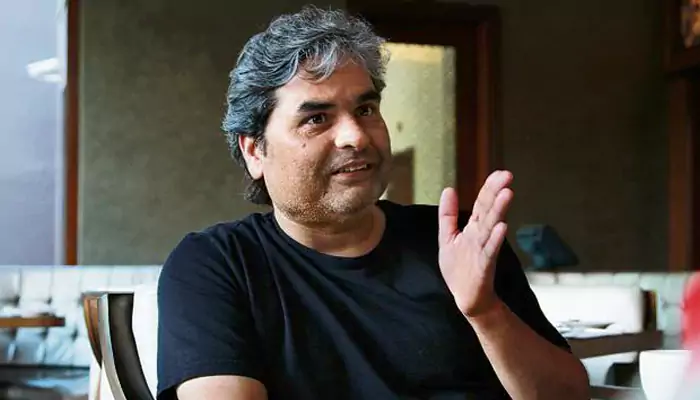
On his 60th birthday, we look back at a career that has never followed the easy path—but has always struck a lasting chord
Vishal Bhardwaj turns 60 this August. It’s not just a birthday—it’s a moment to pause and appreciate the quiet force he has been in Indian cinema. As a composer, screenwriter, and director, he’s shaped some of the most emotionally complex, musically rich, and politically daring films of the last three decades.
Born in Chandpur, Uttar Pradesh, Bhardwaj began life surrounded by poetry. His father was a lyricist, and his mother brought warmth and rhythm into his early world. Cricket was his first dream, but when it faded, music stepped in—offering a new way to channel longing, loss, and beauty.

Bhardwaj didn’t enter the cinema as a director. He arrived as a composer. And from the beginning, his music wasn’t just an accessory—it was the soul.
From Maachis to Satya, and later Ishqiya and Haider, his soundtracks carried the same depth as the stories they served. He used silence with as much skill as sound. A single note from his harmonium, a tremble of strings—often, that was enough to say what words could not.
He won his first National Award for Godmother, and many more would follow. But awards were never the point. Bhardwaj composed to reveal what the characters couldn’t say aloud. His music was their inner world.

What truly marked him as a filmmaker of rare vision was his trilogy of adaptations of Shakespeare—Maqbool, Omkara, and Haider. Each was a study in control and chaos, where love, power, and betrayal unfolded not in castles, but in Mumbai underworlds, dusty heartlands, and conflict-torn Kashmir.
These weren’t just translations. They were deeply rooted Indian films, shaped by politics, caste, family, and history. They weren’t easy films, but they lingered. The characters haunted us long after the credits rolled.
And always, in the background, Bhardwaj’s music whispered—reminding us that beauty can exist even in broken places.

Not every Bhardwaj film has been a hit. But few have been forgettable. Whether it was the twin-driven chaos of Kaminey, the darkly feminist arc of 7 Khoon Maaf, or the bittersweet satire of Matru Ki Bijlee Ka Mandola, he’s never made films to please everyone.
He makes films to explore. To observe. To understand something more difficult, how love and violence live in the same house, how power corrupts silently, and how memory can both wound and heal.
In an era of loud storytelling, Bhardwaj trusts the quiet. He allows moments to breathe. He allows grief to settle. You feel it in Tabu’s silences in Maqbool, in Shahid Kapoor’s quiet rage in Haider, and in Priyanka Chopra’s exhaustion in 7 Khoon Maaf.
He gives his actors space. And they give him some of their best work in return.
At 60, Bhardwaj remains curious. His recent series, Charlie Chopra & The Mystery of Solang Valley, adapted from Agatha Christie, demonstrates that his love for storytelling continues to evolve. He’s also nurturing younger talent through his production house, building a quiet legacy beyond his own films.
He isn’t chasing relevance. He doesn’t need to. His stories still echo.
Vishal Bhardwaj's cinema doesn’t shout. It doesn’t rush. But it stays.
It stays in the violin that cries after a betrayal. In a close-up that holds just one second longer than comfort allows. In the breath between dialogue.
He turns 60 this year. But his films, rich, restless, and deeply human, are timeless.
For those who love cinema that asks more than it answers, Vishal Bhardwaj’s work remains a gift. One that haunts in the best way possible.